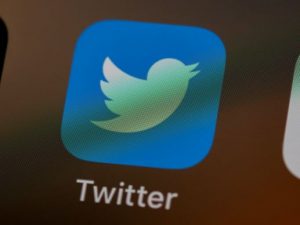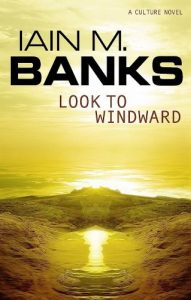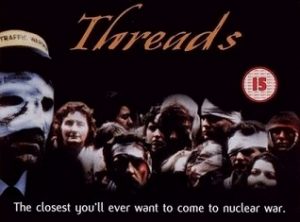
From unsplash.com / © Brett Jordan
At the end of last month, the amount of time I spend roaming the Internet was suddenly halved. This was because when I went Twitter-browsing, and tried to look at the Twitter threads of the numerous people, publications and organisations I read regularly, I was greeted by something new – a page inviting me to ‘sign in to Twitter’. At its bottom, the page made the teasing comment: ‘Don’t have an account? Sign up.’
Yes, billionaire Elon Musk, who took over the platform last year in a blaze of publicity, if hardly a blaze of glory, had blocked access to it for non-members. If you want to see what’s on Twitter, you now have to join Twitter. Musk had previously expressed disapproval at AI companies using Twitter’s data to train their models, which this move would put a stop to. But there’s an equally feasible, more desperate explanation for it. Since Musk’s taking of the Twitter helm, it’s been well-documented how the platform has all but gone down the plughole in terms of membership, advertising revenue, technical reliability and overall credibility. Perhaps this blocking represents a last-throw-of-the-dice attempt to encourage a few million people, who’d hitherto enjoyed seeing Twitter without being on Twitter, to come aboard.
Sorry, Elon. Thanks but no thanks. I had fun peering into Twitter in the past, and I no doubt wasted far too much time doing so, but being denied access to it now is not going to turn me into a committed, signed-up Twitterer. Indeed, I avoid social-media membership, not being on Facebook, Instagram or anything similar. Using WhatsApp is about as far as I go. This is partly because I’m a technophobe at heart and have a distrust of shiny new forms of communication pushed upon me by eager super-rich tech-tycoons. I have good reasons for that mistrust. See, for example, the affair of the dodgy British political consultancy firm Cambridge Analytica, which among other things had a helping hand in Donald Trump’s 2016 election campaign. The firm’s shady activities were helped by a data breach involving the personal details of up to 87 million people, ‘inappropriately’ taken from Mark Zuckerberg’s Facebook.
Also, it’s partly because if I was active on social media, I suspect I’d spend most of my time arguing with idiots and arseholes. And there are a lot of those on Twitter. There always have been, though there seem to be many more now since Musk did away with much of the site’s moderation and declared an ‘anything goes’ policy on ‘freedom of speech’. Well, that’s what he calls ‘freedom of speech’, though most sane people would call it ‘havering and slabbering by far-right-wing turnips’.
I’d always thought Musk was a jerk, but I’d assumed too he possessed some intelligence and business acumen. For one thing, he was a vocal admirer of the works of the late Iain Banks, especially Banks’ science-fiction series of Culture novels, with which he claimed to share a ‘utopian anarchism’. The fact that he read books – unlike Trump, who’s allegedly never read one in his adult life – suggested to me that at least some of his grey matter was working. Although I imagine knowing that Musk, the world’s number-one, right-wing, libertarian, billionaire man-boy, was a fan of his would send poor old Banks twirling in his grave.*

© Time Warner Books UK
Well, since he took over Twitter, I’ve had to revise my opinion of Musk’s IQ downwards. He’s overseen the platform with the finesse of Leatherface from the Texas Chainsaw Massacre movies trying to run the kitchen in a Michelin-starred sashimi restaurant.
His proprietorship began in late October 2022. Before the year was out, he’d shed 50% of Twitter’s employees and reportedly 80% of its contractor workforce, while warning remaining staff to adapt to a ‘hardcore’ working culture of long hours and high pressure. His efforts to charge users for verified accounts were a shambles – as evidenced by a notorious, supposedly-verified ‘Twitter Blue’ account by one George W. Bush who tweeted, “I miss killing Iraqis” The platform swelled with troll accounts because there was neither the manpower left, nor the inclination on Musk’s part, to curb them. And an end-of-the-year poll by Musk inviting Twitter users to vote on whether or not he should stay as its Chief Executive, presumably meant to shore up his position, didn’t go the way he’d intended. 57.5% of respondents told him to quit.
2023 has brought Musk no respite. Only yesterday, the BBC reported that Twitter has lost half its advertising revenue since Musk’s takeover – something he’s admitted himself. Besides not wanting to have their services and products featured next to comments by charmers like Andrew Tate and the Taliban leader Anas Aqqani (who recently praised Twitter for its ‘freedom of speech’, ‘public nature’ and ‘credibility’ – I bet that made Elon feel better), advertisers can’t have been happy at limits imposed earlier this month on the number of tweets users can view per day. The maximum is 1000 for non-verified users, 10,000 for verified ones. This on top of the fact that their adverts aren’t reaching outsiders like me anymore.
Making Musk’s life even harder is sneaky Mark Zuckerberg’s recent decision to launch a rival, Twitter-lookalike platform called Threads. This got 30 million sign-ups on the first day of its existence and 100 million within a week. (Having one of Zuckerberg’s Instagram accounts automatically entitles you to a Threads one, so the new platform was bound to start life with impressive membership numbers.) Musk, predictably, was not happy about this. In addition to calling the pasty-faced, blank-eyed Zuckerberg a ‘cuck’, he said he was ready to take him on in both a cage-fight and a penis-measuring contest. Not being a fan of Zuckerberg either (see the aforementioned Cambridge Analytica scandal for one reason), I have to say there hasn’t been a confrontation where I’ve so badly wanted both parties to lose since… Since…. Well, since last month, when Yevgeny Prigozhin squared up to Vladimir Putin.
Incidentally, Musk has a fan-club of ‘edge-lords’, who are predominantly young, male, white and (I’d hazard a guess) virginal, and whose thinking seems to be: “Oooh, I’m really edgy because I’m very right-wing and I say offensive things about women, black people, Muslims, lefties, gays and transpeople on social media! Though always from the safety of my parents’ basement.” These types worship the ground Musk treads upon and, lately, I’ve noticed their comments below online news articles reporting Twitter’s woes. Obviously, they defend their hero to the hilt. They claim he’s engaged in a cunning game of three-dimensional chess. What Musk’s doing, they say, is part of some brilliant strategy that’ll outfox the evil, liberal establishment and result in him and Twitter taking over the world. Though if, say, Bill Gates was responding to queries from journalists by sending them poop emojis, as Musk has been doing for the last four months, I suspect they’d be less inclined to hail that as a sign of genius.

From wikipedia.org / © The Royal Society
So anyway, that’s Twitter off my radar. It’s a shame, because for many years pre-Musk it’d been a good source of information and entertainment. Occasionally, I’d find stuff on it that was thought-provoking.
For a long period I was obsessed with Scottish and British politics – I’m less so now – and regularly visited the Twitter-threads of a wide range of political pundits, polemicists and bloggers: David Aaronovitch, Derek Bateman, Bella Caledonia, Alastair Campbell, Nick Cohen, Chris Deerin, Ian Dunt, Kenny Farquharson, Flying Rodent, Gerry Hassan, Owen Jones, Pat Kane, Alex Massie, Darren McGarvey, Iain McWhirter, Craig Murray, Laurie Penny, Scot Goes Pop, Wings Over Scotland, Mic Wright… I obviously didn’t agree with all the opinions they expressed, but I felt it important to know what people with different views to mine were thinking. I should add that, for various reasons, I stopped reading some of those folks’ thoughts. Either they became bitter and twisted (McWhirter), or were embroiled in scandal (Cohen), or went howling-at-the-moon mad (Murray, Wings Over Scotland), or simply got too annoying (Deerin, Massie). Or they died, which was sadly the case with Bateman.
Also, as someone who writes a little fiction, I found access to other writers’ Twitter threads invaluable. Writers commonly tweet and retweet names of magazines, anthologies and publishing houses that are looking for new work, and these heads-ups led to me getting a good amount of stuff published. Plus, it was good to know the thoughts of writers who tweeted regularly – not just about writing, but about life generally. These ranged from big names such as Stephen King, William Gibson, Irvine Welsh and Ian Rankin to less famous, but equally engaging, ones such as Anne Billson, Simon Bestwick, Charlie Stross and the late Christopher Fowler.
Twitter also alerted me to a few magazines and publishing houses I should stay clear of. Usually, this was because their staff and associated writers turned out to be extreme-right-wing dingbats who tweeted approvingly about the likes of Jordan Peterson, Tucker Carlson, Tommy Robinson, Laurence Fox, Giorgia Meloni – the only woman worth listening to, apparently – and the bare-chested, horse-riding, bear-wrestling Russian he-man Vladimir Putin. Oh, and they all thought Elon Musk was the bees’ knees. No surprise there.
One thing’s for sure now. I feel as little urge to sign up with Threads as I do with Twitter. One reason is my antipathy towards Zuckerberg. Another reason is that I don’t want to be on a social media platform that shares its name with the most horrifying and apocalyptic film of all time.

© BBC / Nine Network Australia
* For the record, Banks was cremated and his ashes were scattered in Venice, Paris and the Firth of Forth.



